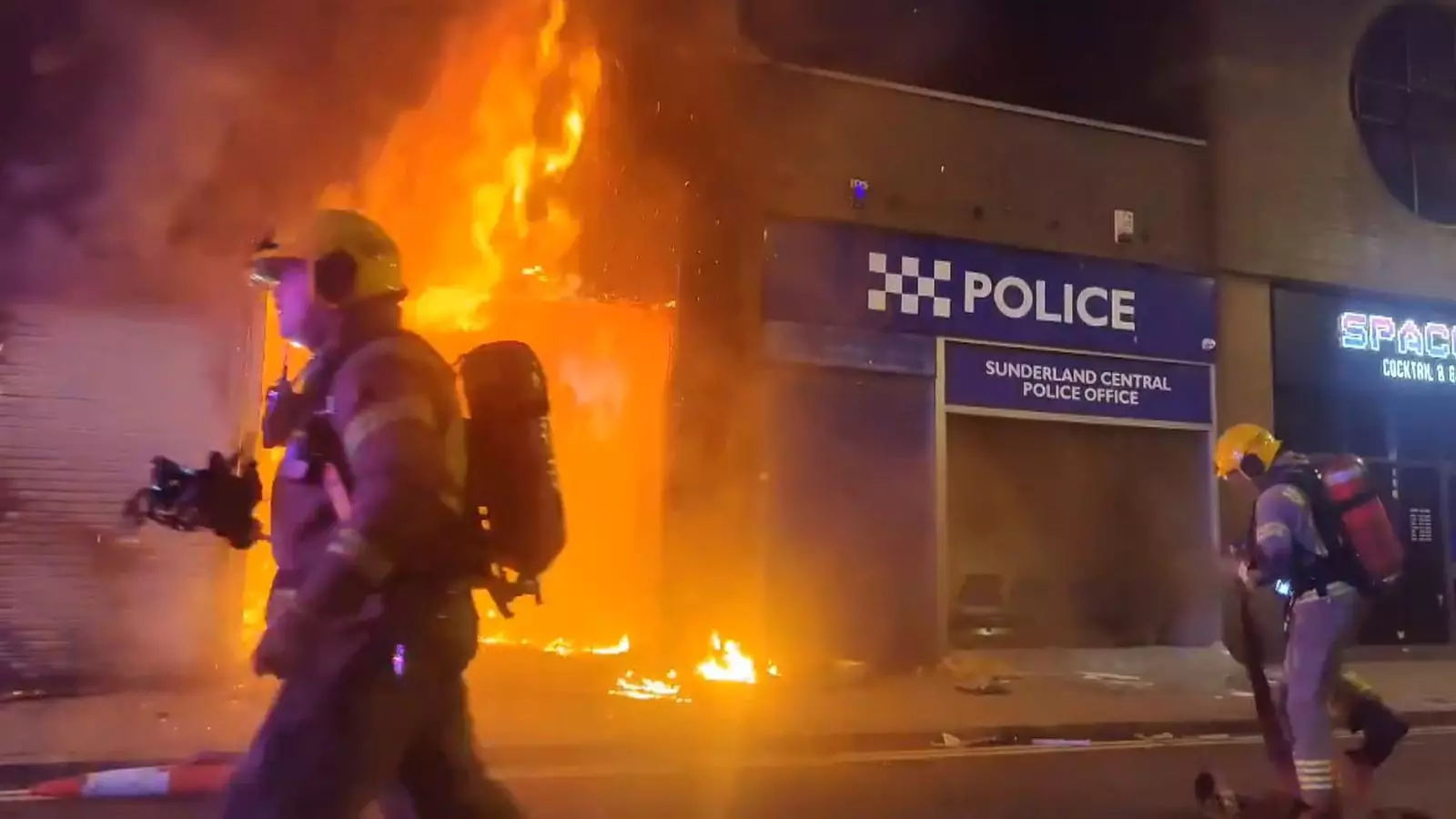This weekend in the UK, a series of protests—largely organized by far-right groups—are anticipated in response to a tragic incident that took place in Southport. These protests compile nearly 30 events, reflecting a disturbing trend in which social unrest has intensified following violent occurrences. This wave of protests is set against the backdrop of significant public outrage, overshadowed by misinformation and inflammatory rhetoric proliferating on social media platforms.
Earlier this week, Britain witnessed violent demonstrations that culminated in over 100 arrests, a startling statistic indicative of the escalating frictions in societal dialogue. The clashes outside Downing Street, paired with further unrest in Sunderland—where a nearby police station was attacked—highlight an urgent need to address the factors driving this discord. Protesters expressed their anger in increasingly aggressive terms, with objects hurled at police officers, culminating in several injuries among law enforcement.
A Reaction to Tragedy and Misinformation
The immediate catalyst for this unrest was a knife attack that occurred at a community centre during a dance class, which tragically claimed the lives of three young girls. As the nation grappled with this horrific crime, a barrage of misinformation about the assailant’s identity and background spread rapidly online. This distortion of facts fed into existing prejudices and fueled a sense of outrage that these protests are now visibly channeling.
In this volatile environment, advocacy organizations like Hope Not Hate have cautioned that many of the protests are driven by anti-multicultural sentiment, often framed within an “anti-Muslim and anti-government” narrative. Notably, these protests are not being coordinated by a singular group but appear to be the product of widespread discontent among fractious elements of society, which complicates any cohesive response.
British authorities are bracing for the backlash by deploying heightened police presence across the country. Gavin Stephens, the chair of the National Police Chiefs’ Council, emphasized the importance of preparedness, stating that police will operate with increased intelligence and resources to counteract potential violence. Furthermore, arrangements are being made for additional prosecutors, ensuring that those who incite or enact violence face swift legal consequences.
Prime Minister Sir Keir Starmer’s announcement of a “national” strategy to counteract the growing disorder indicates a recognition of the urgent need for collaboration between police forces across different regions. This approach seeks to mitigate the risk of violence and ensure that communities are protected from potential outbreaks of unrest similar to those witnessed earlier in the week.
The connection between rising far-right activism and the recent events cannot be overlooked. In Sunderland, protests escalated into conflicts that resulted in injuries and arrests. Reports have linked some of the demonstrators to far-right groups, including the controversial English Defence League (EDL), which gained notoriety under the leadership of Tommy Robinson. The presence of individual symbols, such as flags associated with neo-Nazi groups, at these protests underscores a troubling overlap between historical extremist movements and today’s uprising.
Local lawmakers have voiced concerns about the situation, suggesting that the protests were likely incited by social media narratives that developed in the aftermath of the Southport stabbings. Notably, MP Lewis Atkinson pointed out the specific rallying efforts linked to the EDL, suggesting that there exists a continued network of far-right sympathizers looking to exploit such tragedies for their agenda.
The Way Forward: Countering Division with Unity
The rise in far-right activity not only perpetuates societal divisions but also threatens the fabric of a multicultural society. Advocates for social harmony, including organizations working for anti-racist causes, are organizing counterprotests, indicating a resilience in the face of extremism. The duality of protests—far-right aggression versus counter-movements advocating for unity—reflects an ideological battle that is sure to continue in the weeks to come.
The increasing polarization in UK society calls for urgent dialogue and action to address the underlying issues fueling extremism and misinformation. As the nation stands on the brink of further unrest, the critical task ahead is fostering an environment where discourse can occur without violence, and where the rich diversity of the British populace is acknowledged and celebrated rather than vilified. Balancing the scales between justice and social unity is challenging, yet entirely necessary, in a world fragile from division and fear.


Leave a Reply